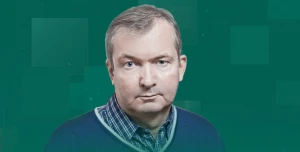
Ukraine's road to losing the war with Russia
It's easy to say, "We shouldn't forget that it's a war," when considering what can be done to avoid losing. But simply remembering that it's a war isn't enough
If we assume that the destruction of Ukraine's statehood is an important task for Putin, how can this be realistically achieved in the long term?
Creating a failed state on Ukrainian territory.
The strategy will be to separate Ukraine as far as possible from European trends and trends in the "Western world." The concept of “the West against all” is itself imposed by the Russians, but it is applicable to our exercise because we are analyzing Russia's mindset. And they believe in "West against the rest."
If you carefully read analytical reports and articles, the corporate world in the EU and the US is slowly beginning to realize that global conflicts are becoming part of the environment that affects business. Risks have increased—China is no longer so business-friendly. The priorities of public money have changed—a lot of money will be spent on sustainability and security.
European countries are already planning their policies in line with the new conditions. Anything that secures supply chains is good. Anything that reduces dependence on non-democratic regimes is good. Because the regimes have proven their viability and appetite for war, it suggests that a world marked by wars will last for a long time. Hungarians, Poles, and Bulgarians are already looking for new investment projects, a new reality, and new opportunities.
Only last week, Hungarians started talking about how to "cooperate, not compete" in agriculture. This is the case in all sectors and in many countries.
What would I do if I were the Russians? I would keep us as far away from these processes as possible. And I'm not talking about accession negotiations—let them happen. I wouldn't let Ukraine become part of the European vision of how to develop in the new environment. I wouldn't want Ukraine to be a part of the movement, but a battleground that incurs costs and has the potential to generate migration waves.
How can this be achieved? There's no need to reinvent the wheel; the Russian strategy in such scenarios is well established. Use the negative trends that exist:
- Raise expectations by promoting the notion that "victory is ours" so that if Crimea is not retaken, it would appear as though "we have been betrayed."
- Strengthen the polarization within the country by dividing it into "those who fought" versus "those who did not fight," and "those who fled" versus "those who did not flee."
- Intensify corruption and maximize its visibility abroad.
- Through corruption and pressure on businesses, eliminate any theoretical possibility of initiating joint investment projects with Europeans. This way, reconstruction funds remain only in presentations, while in reality, there is no viable investment opportunity.
- Destroy the credibility of any institutions—parliament, government, local government.
- All these trends are already present. There is no need for agents of influence; just merely observe them. These trends can be further exacerbated by continuing the war. If missiles and cannon fodder are directed at Ukrainians from various regions, these trends will only intensify.
Europe will adopt a new vision, Russia will attempt to emulate the USSR, and Ukraine will remain a site of ongoing conflicts, missed opportunities, and issues for Europeans. Over time, it will become possible to establish a new administration and acquire what remains: land, rare earths, and human capital.
How to counter this? Work on European integration in reality, not just for the news. Fight the negative trends that keep us away from Europe.
Not in the format "the state should..." Choose projects and tasks that oppose the scenario convenient for Russians. There is no single rule or "moral and ethical center"—there is only a common vision. In which everyone offers their own solutions. We are strong in this.
If we are against Russian influence for the long haul, then we have to fight for the long haul.
About the author. Roman Vybranovskyi, Ukrainian journalist, Chairman of the Board of the Center for Human Capital.
The editors don't always share the opinions expressed by the blog authors.
- News












































